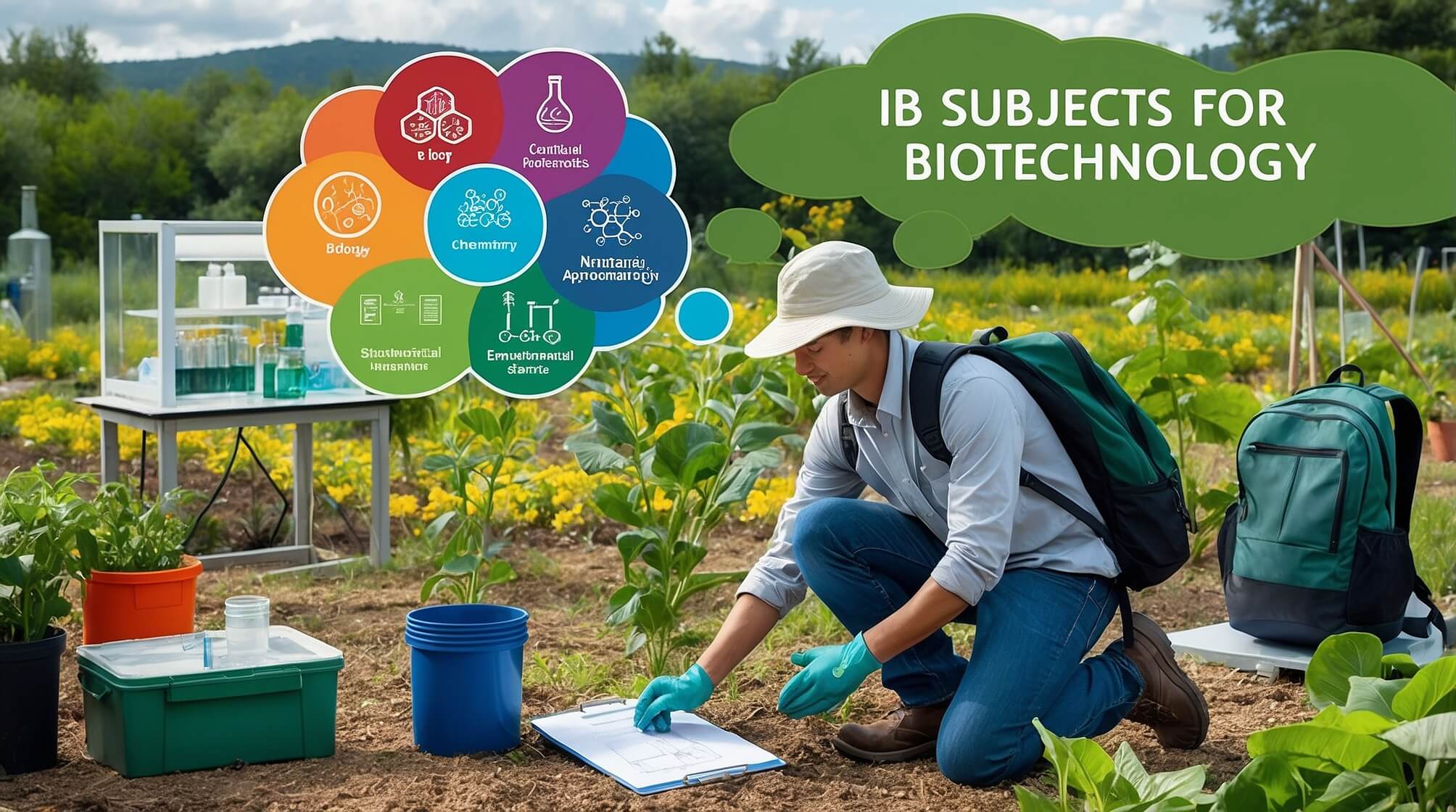IB Subjects for Biotechnology: Everything You Need to Know

This guide outlines the key components of IB Biotechnology within the International Baccalaureate curriculum. It covers essential subjects like Biology, Chemistry, and Environmental Systems and Societies, highlighting their relevance to biotechnology. In the International Baccalaureate (IB) curriculum, students interested in biotechnology can explore a range of subjects that provide a solid foundation in scientific knowledge and practical skills. Studying biotechnology within the IB framework can prepare students for advanced studies and careers in science, healthcare, and environmental management. Here’s a look at the key IB subjects relevant to biotechnology.
Understanding IB Biotechnology
Aims of the Course
IB subjects related to biotechnology aim to develop students' understanding of the biological sciences and their applications in technology. These courses encourage critical thinking, problem-solving, and ethical considerations, which are essential for addressing the challenges of modern biotechnology. By studying biotechnology, students learn how biological knowledge can be used to improve healthcare, agriculture, and the environment.
Core IB Subjects for Biotechnology
Biology
Biology is the primary subject for students interested in biotechnology. The IB Biology course covers fundamental concepts such as cell biology, genetics, and biochemistry. Students learn about DNA, RNA, and protein synthesis, which are crucial for understanding genetic engineering and molecular biology techniques. Topics like genetic modification, cloning, and gene therapy are explored, providing a solid grounding in how biotechnology can be applied to solve real-world problems.
Chemistry
Chemistry is another essential subject for biotechnology students. The IB Chemistry course focuses on chemical principles and reactions that are relevant to biological systems. Topics include organic chemistry, biochemistry, and analytical techniques used in biotechnology labs. Understanding chemical reactions and processes is vital for students who wish to work with pharmaceuticals, biofuels, or the development of new materials through biotechnological methods.
Environmental Systems and Societies (ESS)
Environmental Systems and Societies (ESS) is an interdisciplinary subject that combines elements of biology, chemistry, and environmental science. This course is valuable for students interested in biotechnology applications that address environmental issues. Topics include sustainable agriculture, biodiversity, and the impact of biotechnology on ecosystems. ESS helps students understand how biotechnological innovations can be used to protect the environment and promote sustainable practices.
Additional IB Subjects Supporting Biotechnology
Mathematics
Mathematics is a critical tool in biotechnology, used for data analysis, statistical research, and modelling biological processes. IB Mathematics courses, including Mathematics: Analysis and Approaches or Mathematics: Applications and Interpretation, provide students with the skills needed to handle complex data and perform quantitative analysis. Understanding mathematical principles is essential for interpreting experimental results and developing new biotechnological solutions.
Physics
While not directly related to biotechnology, Physics can be beneficial for students interested in the technical aspects of the field. Knowledge of physics principles is useful for understanding the operation of laboratory equipment, imaging technologies, and the physical properties of biological molecules. IB Physics provides a solid foundation in areas such as mechanics, electromagnetism, and thermodynamics, which can enhance a student’s understanding of biotechnological processes.
Computer Science
Computer Science is increasingly important in the field of biotechnology, particularly in areas like bioinformatics and computational biology. IB Computer Science courses teach students programming skills and problem-solving techniques that are valuable for analysing large datasets, such as those generated by genetic sequencing. Understanding computer science enables students to develop software tools and models that can predict biological outcomes and design new biotechnological applications.
Practical Skills and Research in IB Biotechnology
Laboratory Work
Practical laboratory work is a core component of IB subjects related to biotechnology. Students gain hands-on experience in techniques such as DNA extraction, gel electrophoresis, and polymerase chain reaction (PCR). These skills are essential for conducting experiments, understanding biological processes, and developing biotechnological innovations. Laboratory work also teaches students how to follow safety protocols and manage experiments effectively.
Research and Investigation
The IB curriculum emphasises independent research and investigation. Students undertake projects that allow them to explore biotechnological topics of interest, such as genetic engineering, environmental biotechnology, or medical applications. These projects help students develop critical thinking, research design, and analytical skills. They also provide an opportunity for students to apply their knowledge to real-world problems, preparing them for future studies and careers in biotechnology.
Ethical Considerations in Biotechnology
Understanding Ethical Issues
Biotechnology raises important ethical questions, such as the implications of genetic modification, cloning, and the use of biotechnology in medicine and agriculture. IB courses encourage students to think critically about these issues and consider the ethical, social, and environmental impacts of biotechnological advancements. Understanding these considerations is crucial for making informed decisions and promoting responsible use of biotechnology.
Global Perspectives
The IB curriculum promotes a global perspective, helping students understand how biotechnology affects different societies and cultures. Students learn about the global challenges and opportunities presented by biotechnology, such as addressing food security, combating diseases, and protecting biodiversity. This awareness prepares students to contribute to global solutions and engage in meaningful discussions about the role of biotechnology in the world.
Conclusion: Why Study Biotechnology in the IB?
Studying biotechnology within the IB framework offers students a comprehensive education that combines scientific knowledge with practical skills and ethical awareness. The core subjects of Biology, Chemistry, and Environmental Systems and Societies provide a strong foundation, while additional courses in Mathematics, Physics, and Computer Science offer valuable support. By engaging in hands-on laboratory work, research projects, and ethical discussions, IB students gain the skills and knowledge needed to excel in the field of biotechnology. Whether interested in healthcare, environmental science, or cutting-edge technology, IB biotechnology subjects prepare students for a future of innovation and discovery.
In Bangalore, Knowledgeum Academy stands out as one of the best IB schools in Bangalore offering the IB Diploma Programme, providing excellence in every stream. knowledgeum is the best choice if you want to excel in biotechnology.




